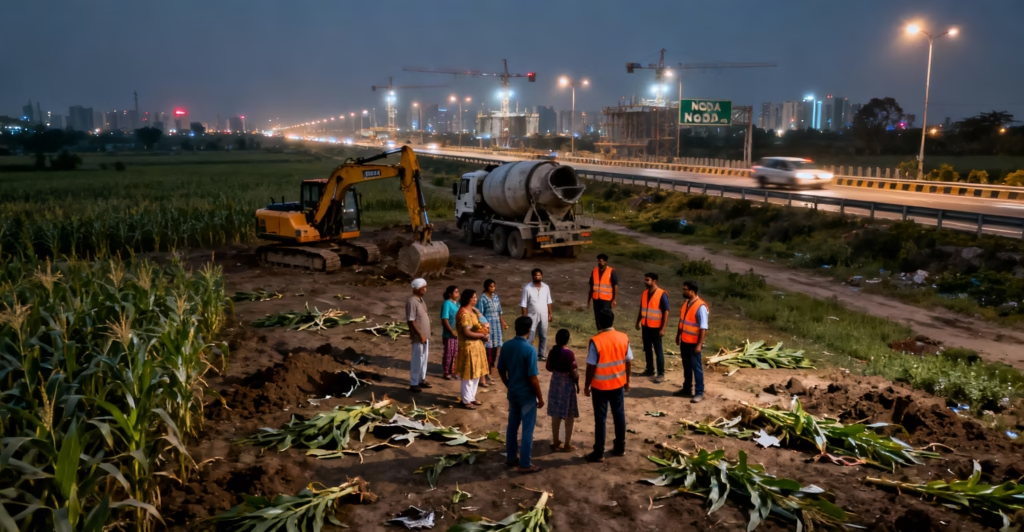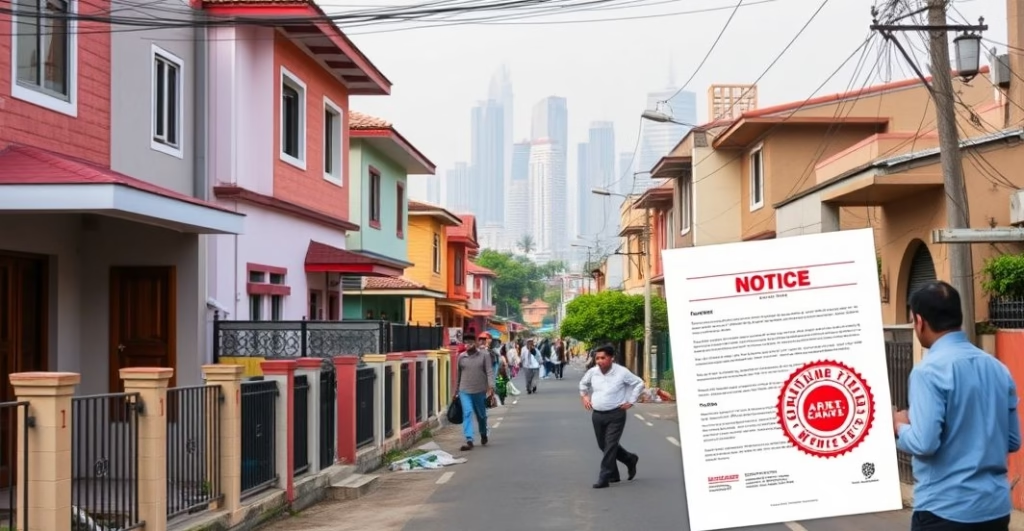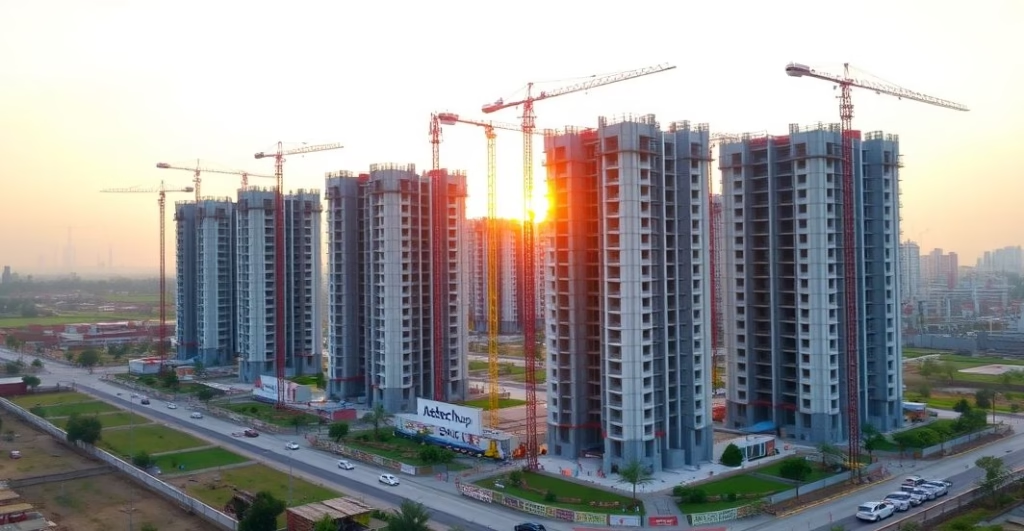Auto-published by Growwh – a smarter way to scale content and marketing. Want to know more? Chat with us.
TL;DR: Farmers filed an FIR alleging men linked to Logix Buildestate and Ace Group assaulted family members and occupied farmland near Yamuna Expressway. Developers deny the claims; police are investigating while the land remains under court litigation.
Noida FIR: Farmers, Developers and a Land Dispute
A late-night confrontation in Rabupura, along the Yamuna Expressway, has escalated into a registered FIR after a farmer alleged that men linked to two developers forcibly occupied agricultural land and assaulted family members. The complaint centers on a 0.9-hectare plot (kasra no. 63, Shahpur) that the complainant says has been cultivated by his family for generations.
What the FIR alleges
The FIR filed at Rabupura police station claims that around 1am on Oct 31 a group arrived at the farm, began destroying standing crops and declared development work was starting for an Ace Estate project. When family members resisted, the complaint states they were assaulted—allegedly including women—and threatened with “dire consequences” if they pursued the matter. The FIR names Ajay Chaudhary (CMD of Ace Group), Mukesh Khurana of Logix Buildestate Pvt Ltd, and unidentified aides.
Police action and investigation status
Authorities have described the matter as sensitive because the land is under litigation in the Allahabad High Court. Police have registered the case under sections referring to voluntarily causing hurt, criminal intimidation, mischief and related offenses, and have begun examining call records, inspecting the site, and reviewing video footage submitted by both sides. The complainant has requested police protection and a status quo until the court rules.
Developers’ response
Both Logix Buildestate Pvt Ltd and Ace Group have rejected the allegations. Logix says the land was legally acquired by the Yamuna Expressway Industrial Development Authority (YEIDA), with a lease deed signed in 2013 after dues were cleared, and claims repeated trespass and vandalism by local individuals since June 2025. The developer states it filed complaints with police on June 17, Aug 9 and Oct 30 and has submitted documents to substantiate its position.
Ace Group has said the allotment was made legally to Logix Builders by YEIDA, that the layout plan was approved, and that possession was legally handed over after authorities cleared encroachment. Ace also distanced its CMD from operational control of the disputed parcel, calling the FIR “one-sided” and warning against dragging unrelated names into the case.
Legal context and market implications
The dispute highlights how pending litigation over land titles and possession can erupt into conflict on the ground—and why clear legal title and due diligence are critical for buyers and developers. For buyers, especially those outside India, performing robust checks is essential; see practical guidance on legal due diligence for NRI property buyers in India to understand title, possession and litigation risks.
Local infrastructure projects and connectivity upgrades often intensify land-value pressures around Noida and the Yamuna Expressway. For readers tracking hot spots and transit-led appreciation, read more about how connectivity shifts influence property demand in the region: Delhi Metro expansion and Noida property hotspots. New residential launches and township plans—like Samridhi Luxuriya Avenue in Sector 150, Noida—are examples of projects that see heightened interest when land parcels and approvals are settled.
Practical takeaways
- Pending court cases and disputed possession can delay projects and create on‑site conflicts—buyers and investors should verify the status of litigation and possession before committing.
- Developers and authorities may offer competing narratives; expect police investigations and documentary evidence (lease deeds, allotment letters, site inspections) to be central to resolution.
- If you own or are buying land in transit‑oriented corridors, engage legal counsel early and maintain documentation showing continuous possession, mutation records and any communications with authorities like YEIDA.
Conclusion
The Rabupura episode underscores the volatility that can surround contested land near major infrastructure corridors. With an FIR lodged and both developers and the complainant presenting conflicting claims, the police probe and the pending high court hearing will be pivotal. Stakeholders—residents, buyers and developers alike—should prioritize clear title, documented possession and timely legal counsel to reduce risk and prevent escalations.
This article was auto-generated as part of a smart content campaign powered by Growwh.com. Curious how we do it? Chat with us to learn more about our content automation systems.


